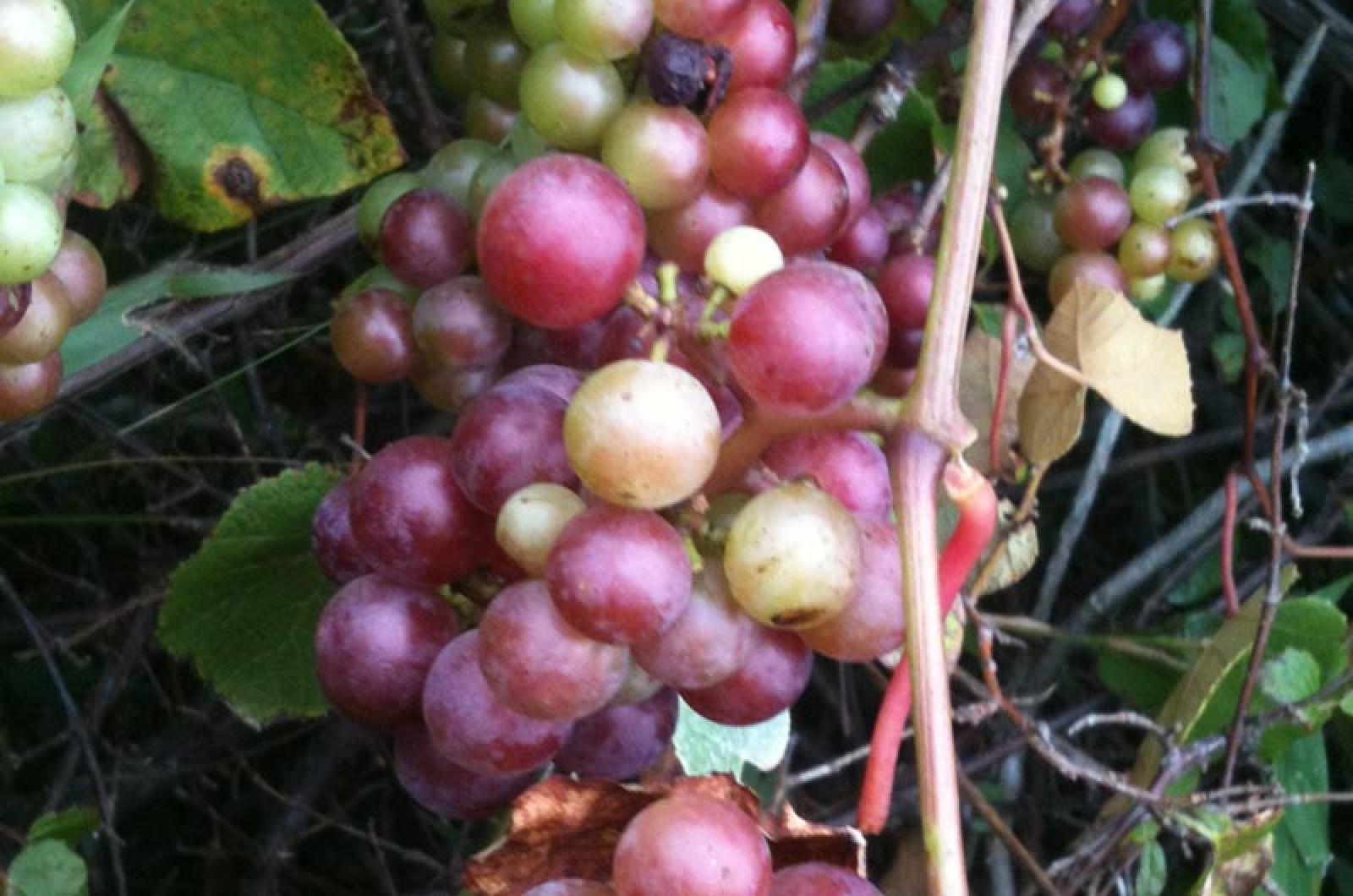E.B. White found appreciation in even the simplest of life’s tasks. He believed that “We should all do what, in the long run, gives us joy, even if it is only picking grapes or sorting the laundry.”
I enjoy both of those tasks for different reasons. Hanging the laundry outside on my umbrella-style drying rack reminds me of my grandmother who did the same task for over 60 years on the same type of stand. It is quite satisfactory to use the sun and the wind, even if the towels get scratchy.
Picking grapes is an even greater pleasure that leads to a day of fun in the kitchen and a future of food for friends and family. Grapes are ripening on the Island’s namesake plant and are ready for harvest.
This fruit is generally easy to identify. The two wild varieties found here, fox and silverleaf grapes, style themselves in vines that climb on trees and shrubs. Their climbing finesse is only possible because of their tenacious tendrils. These thin strands are thigmatrophic, meaning they harbor a hormone that is released when the tendril touches an object. This hormone immediately alters the tendrils’ growth from straight to a rapidly coiling spiral that will create a stranglehold over its substrate. Look closely and see the two types of tendrils on an individual plant.
Identify grapes by their woody vines and large, lobed leaves, along with their robust round fruit. Don’t mistake them for other inedible vines such as Virginia creeper or porcelain berry.
If you find some, ideas abound for their use. Juice, jams, jellies and wine are just the beginning. A simple and delicious idea for the over-21 set is grape liquor. I made this concoction by mixing equal parts of simple syrup, crushed grapes and vodka and letting it rest for five to seven days (though I mix it daily). After straining off the fruit, this appealing aperitif was bottled and labeled. I called it ‘the grape escape.’
Though sweet and lovely, only a small glass is recommended. After all, when speaking of grapes, the Greek philosopher Diogenes did note that “The vine bears three kinds of grapes; the first of pleasure, the second of intoxication, the third of disgust.” He knew not to get too spirited!
Lord Byron took a more positive approach. He advised, “Man being reasonable must get drunk; The best of life is but intoxication; Glory, the grape, love, gold — in these are sunk — The hopes of all men and of every nation.”
Grapes have been enjoyed throughout history for their taste and health benefits. In this country, colonists arrived and found more than 40 native grape varieties, although they preferred the taste of their native European types. They quickly planted more than 20,000 acres by the early 1700s. Governor Winthrop took over Governor’s Island to plant grapes, though the vines died rather quickly.
If you aren’t picky, you don’t have to plant cultivars. Instead, take advantage of the natural bounty the Island has to offer. But don’t wait too long. Wildlife might beat you to them, or time may allow them to ferment on the vine. And if other avid grape aficionados beat you to the wild supply, you may find yourself with nothing at all but sour grapes, or else the grapes of wrath.
Suzan Bellincampi is director of the Felix Neck Wildlife Sanctuary in Edgartown.





Comments
Comment policy »